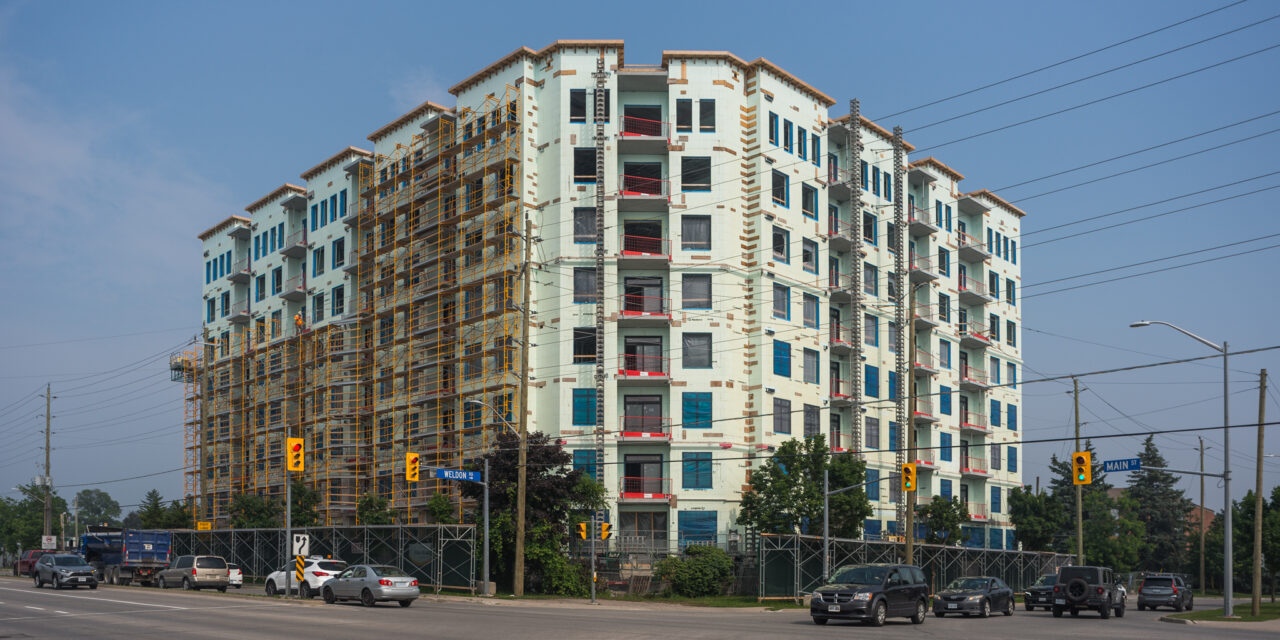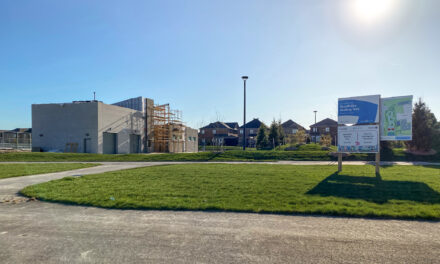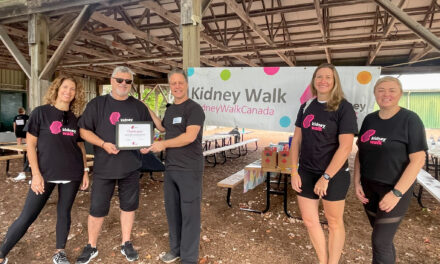- Stouffville has updated its Housing Action Plan for a second submission to the Federal Housing Accelerator Fund (HAF) grant program.
- Operated by the Canada Mortgage and Housing Corporation (CMHC), HAF’s second stream offers a total of $400 million in housing-supportive funding.
- HAF aims to incentivize and facilitate the accelerated delivery of new housing through zoning and policy reforms.
- The initiatives proposed in the Town’s Housing Action Plan have an estimated cost of $2.35 million.
- They are intended to increase efficiency within the development approvals process, provide more affordable and diverse housing options, and support the creation of complete communities.
- If successful, Stouffville hopes its Housing Action Plan will lead to 345 additional housing units over the next three years.
According to a recent Staff report, the primary purpose of HAF funding is to implement initiatives detailed in the Housing Action Plan. It may also be used for investments in affordable housing and housing-related infrastructure, such as roads, recreational facilities, and water and wastewater systems.
This is the Town’s second attempt to access the program following an unsuccessful application in 2023. The first stream offered $4 billion in funding, but demand far exceeded capacity, with more than 500 applications submitted and just 179 municipalities selected.
Stouffville was not alone in its bid, as five other northern York Region municipalities also fell short. Frustration grew among some Regional representatives due to CMHC’s lack of individualized feedback on why applications were declined. In March, Regional Council passed a resolution calling for re-assessments.
In April, the Federal Government announced the second HAF stream. While it offers just $400 million, it provides an opportunity for denied municipalities to strengthen their proposals. CMHC also shared 10 best practices from successful applications to guide municipal reviews of their Housing Action Plans.
These best practices include expanding zoning permissions to help deliver more housing, facilitating greater densities near transit corridors and urban centres, reducing or eliminating minimum parking requirements in new developments, and removing restrictions on building heights, setbacks, and unit counts.
In response, Mayor Iain Lovatt proposed two Council resolutions: one to seek as-of-right fourplex permissions and another to investigate reduced parking minimums. Council narrowly supported his push for fourplexes in a 4-3 vote, and a review of permissions to allow them was included in the updated Housing Action Plan.
Council was less supportive regarding parking, with four of seven members opposing Lovatt’s proposal. However, the updated Housing Action Plan offers a study to “determine parking requirements for medium and high-density development applications…including minimum parking rate requirements and where eligible developments should be located to receive a reduction in parking.”
“Reducing parking requirements can encourage more density and…increase housing supply in the Town,” the Action Plan states. Reducing parking could also improve project viability, decrease development costs, and resulting “savings can be passed to renters and buyers to boost housing affordability.”
That assessment will focus on Major Transit Station Areas (MTSAs), including lands around both of Stouffville’s GO stations. Growth areas like the Main Street Western Approach and Gateway, along with development lands along Highway 48, will also be considered.
Other HAF initiatives include a plan to incentivize the development of affordable units and a study to identify where house-scale infill development can increase density within existing neighbourhoods. An inclusionary zoning study would also look to maximize the number of affordable housing units within MTSA development projects.
Stouffville also aims to enhance growth management assessments, improve development services software to streamline decision-making, and speed up the site plan approval process. A proposed Servicing Allocation Study would review servicing capacity allocation policies and establish a revocation system for development projects “not proceeding in a timely manner after receiving planning approvals.”
Over the next three years, the Town expects to permit 1,090 new housing units. Should the HAF application be successful, Staff believe an additional 345 units could be delivered in the same period. Staff also hope HAF funding will increase the percentage of affordable units within that three-year projection from 2.5% to 9%.
If the Town’s second application is denied, Staff have noted that the Housing Action Plan initiatives will be included within capital plans proposed through the 2025 budget process. “Should the Town be successful in its application, relevant funds from the capital budget will not be required,” they said.





